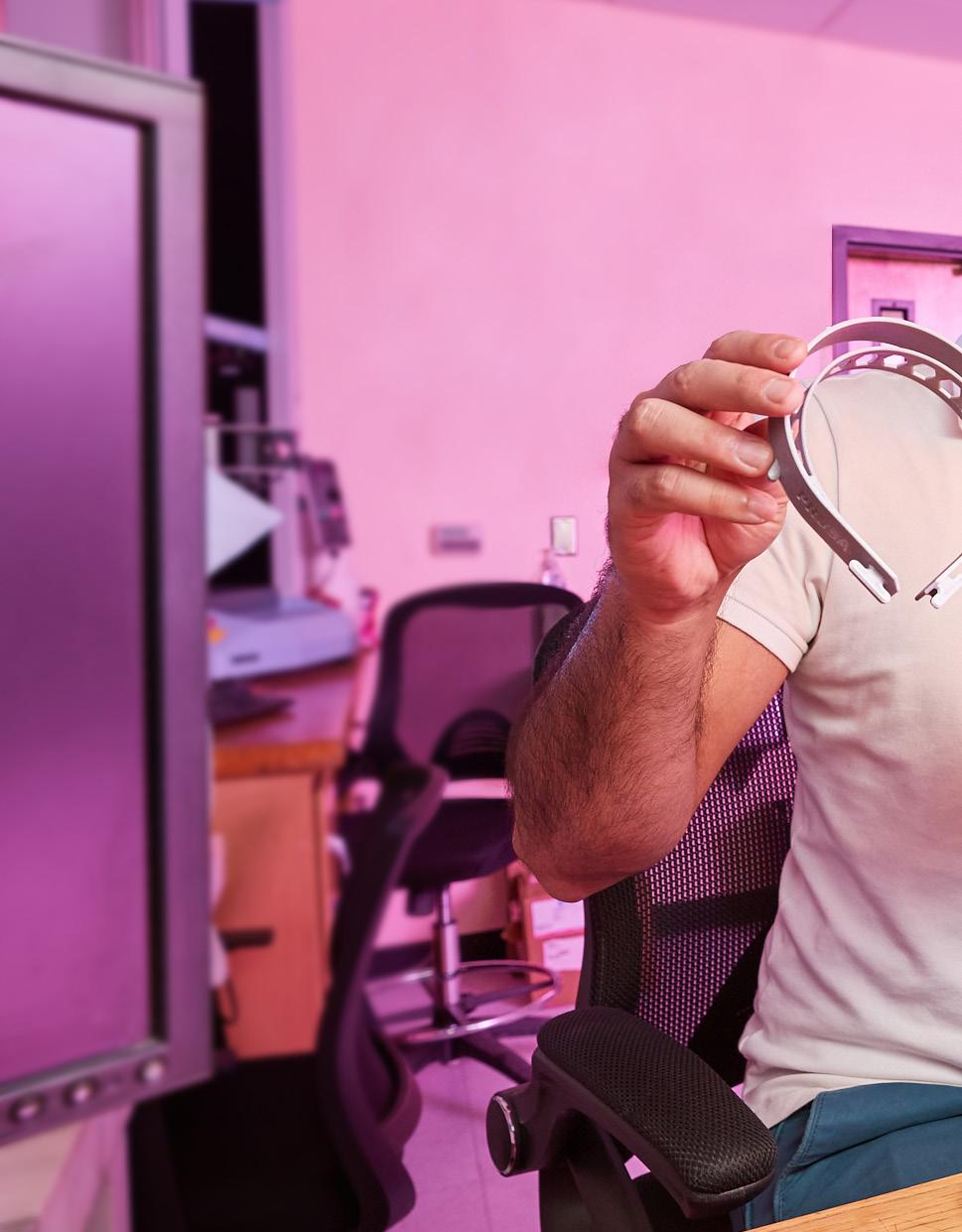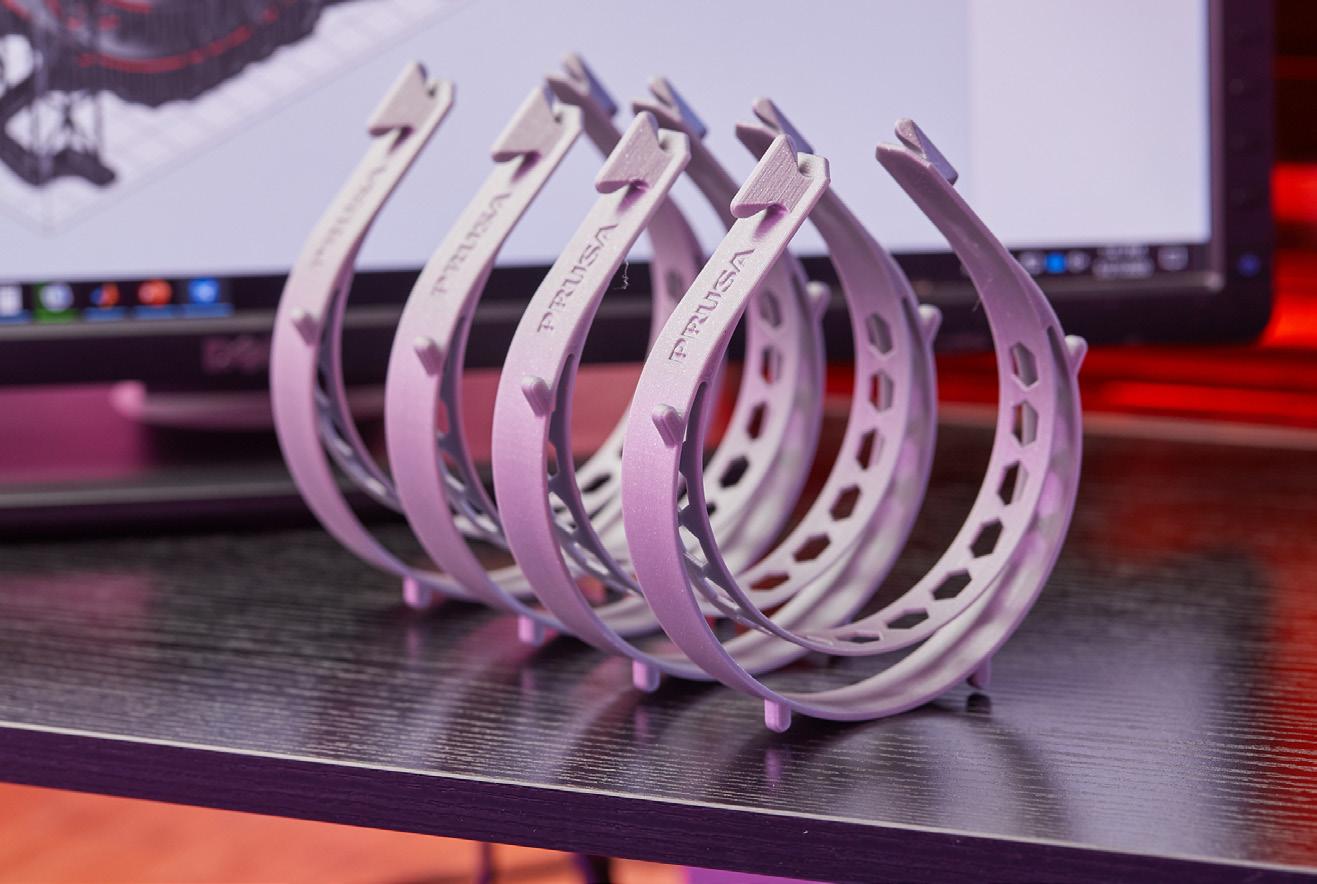
3 minute read
Technology that Serves
TECHNOLOGY THAT SERVESTHAT SERVESTHAT SERVES
By Trent Shadid
As a child growing up in Iran, Behzad Fotovvati developed a curiosity for how things work. That inquisitiveness grew into a fascination for scientific understanding as he got older and eventually led him to jump at the opportunity to study mechanical engineering. He earned his bachelor’s and master’s degrees in the area of study while still in Iran.
After a brief stint working in his home country, Fotovvati’s curiosity expanded once more. This time, he wondered how he could better connect with and serve people around the world.
Fotovvati began researching PhD opportunities in the United States. He made a connection with Dr. Ebrahim Asadi, director of the Metal Additive Manufacturing Lab and assistant professor of Mechanical Engineering at the UofM. That’s when Fotovvati started to see additive manufacturing — commonly known as 3D printing — as a potentially perfect fit encompassing all of his interests. He followed his instincts, moving across the world in 2016 to take his education one step further at the UofM.
Four years later, Fotovvati earned his PhD in Mechanical Engineering. He defended his dissertation two months after the COVID-19 pandemic forced the UofM to shift instruction fully online.
It was during that time Fotovvati was able to fulfill his desire to help others. Under the direction of Asadi, he and his colleagues kept the state-of-theart Metal Additive Manufacturing Lab running around the clock, printing face shield frames to help protect workers in clinics and hospitals across the State of Tennessee.
“The COVID-19 pandemic changed the everyday lives of many people, including myself, all over the world,” Fotovvati said. “In those circumstances, being able to help produce face shield frames for those who are putting their lives at risk to care for others felt like an effective way to make a positive difference. That sort of thing is exactly what I set out to do as I furthered my academic career here.”
At the onset of the COVID-19 outbreak in the United States, the lab delivered the personal protective equipment (PPE) to Le Bonheur Children’s Hospital and the Tennessee Emergency Management Agency. The lab later partnered with two local companies — MCR Safety and Precision Plastics — to enhance its capability to quickly produce face shields for first responders, health care facilities and medical professionals.
For Fotovvati, helping provide for others came at the conclusion of an educational experience he describes as supportive and productive while also enhancing his knowledge immensely.
“The opportunities provided to me during these four years at the University of Memphis have been amazing,” Fotovvati said. “The Herff College, the Department of Mechanical Engineering and working under Dr. Asadi in the Metal Additive Manufacturing Lab all helped lead my research in the perfect direction.”
Even before beginning production of PPE for COVID-19 workers, Fotovvati’s experiences at the UofM taught him many ways in which he could make a positive impact. He was able to observe the benefits additive manufacturing can have in everyday life across various fields — including the automotive, aerospace and health care industries.
“During the past four years, my interest in additive manufacturing increased significantly,” Fotovvati said. “I was able to closely examine how this emerging technology can have a positive effect on everyone. One example is how 3D printing has vastly improved medical implants.

“In the future, I would like to further my research in this area to help fulfill my desire of having an impact on people across the world. That may even include the pursuit of a career in academia to educate and train students and researchers willing to serve humanity.”





